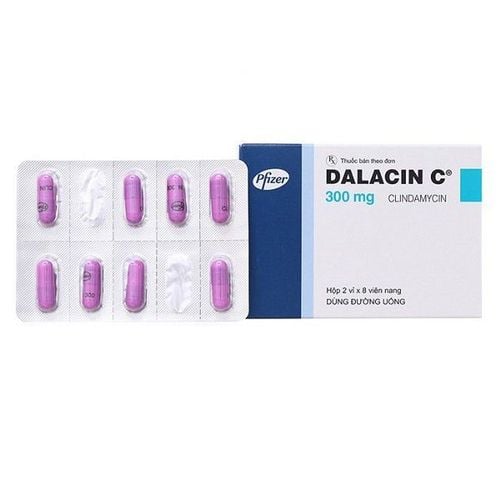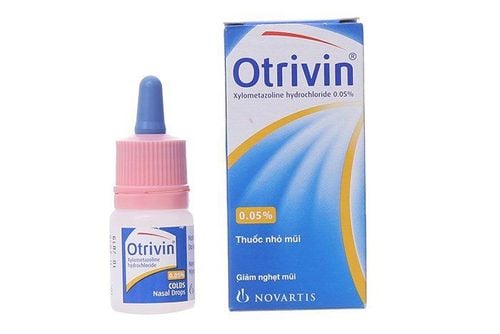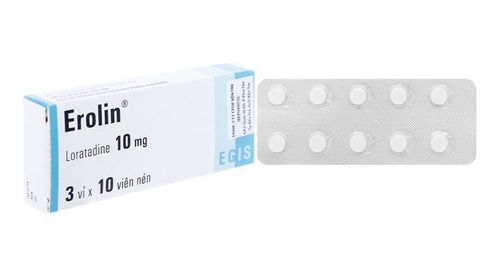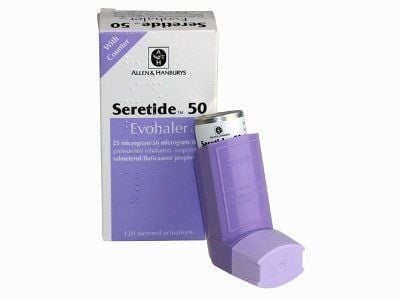Coughing and a sore throat are common symptoms in both children and adults, and they tend to recur frequently. Many people have questions about the causes and treatment of a sore throat and cough. This article will help clarify these issues.
1. What Causes a Sore Throat and Dry Cough?
A persistent dry cough and pharyngeal itching are indicative of respiratory tract irritation. These symptoms can affect individuals across all age groups but are more commonly observed in pediatric and geriatric populations. There are many potential causes for a sore throat and dry cough, including:
1.1.Common Cold and Influenza
These are among the most frequent causes of sore throat and dry cough, especially during seasonal changes. Typical symptoms include coughing, throat irritation, fatigue, and rhinorrhea (runny nose). The common cold and influenza usually resolve on their own within 5 to 7 days. However, in the days that follow, patients may continue to experience persistent coughing and throat discomfort.
Coughing episodes may last from 1 to 2 weeks, or even up to 3 weeks. This is part of the immune system's response to the infection. Specifically, leukocytes (white blood cells) migrate to the inflamed area to combat the pathogens. As a result, even after the cold or flu has resolved, patients may still experience a sore throat and cough. Additionally, post-nasal drip, where mucus from the sinus cavities drains down the posterior pharyngeal wall, can also trigger coughing.
1.2. Allergic Reactions
Coughing and pharyngeal irritation caused by allergies are immune responses where the body tries to expel allergens, such as dust, mucus, and microorganisms. People are more likely to experience this when exposed to allergens like pollen, pet dander, and certain foods.
Initially, patients may develop symptoms such as a dry cough, paroxysmal coughing, and throat itching. Over time, these symptoms may persist, with coughing episodes lasting for months or even years, despite using standard anti-inflammatory and antihistamine medications. In some cases, patients may experience a burning sensation in the throat, throat discomfort, or laryngospasm (tightening of the vocal cords), which can cause difficulty breathing (dyspnea). If not treated properly, allergic reactions can lead to secondary respiratory infections.
1.3. Dehydration
Dehydration is another common cause of sore throat and dry cough. During hot summer weather, after exercise, or when ill, the body loses more fluids than usual. The first symptom of dehydration is dry mouth (due to insufficient salivation in the oral cavity and pharynx), which then leads to a sensation of throat irritation and a dry cough. Patients may also experience sensations of extreme thirst, dark urine, and other signs of dehydration.
1.4. Pneumonia and Bronchitis
Persistent dry cough and pharyngeal irritation, particularly nocturnal, may be clinical manifestations of pneumonia or bronchitis. The intensity of coughing increases when these lower respiratory tract structures are infected, leading to both acute and chronic conditions. Patients commonly exhibit symptoms such as a non-productive dry cough or a productive cough with purulent sputum, odynophagia (painful swallowing), throat irritation, pyrexia (fever), pleuritic chest pain, dyspnea (shortness of breath), and chills. Given the potential for these conditions to escalate to more severe complications such as respiratory failure or sepsis, early diagnosis and intervention are critical to prevent adverse outcomes.
1.5. Gastroesophageal Reflux Disease (GERD)
Gastroesophageal reflux disease (GERD) can cause acid to flow back into the esophagus, especially during sleep, which irritates the throat. This can lead to symptoms such as throat itching, dry cough. GERD is caused by the backflow of gastric contents into the esophagus, which can affect the upper respiratory tract and lead to such discomfort.
1.6. Asthma
Coughing and throat irritation can also be signs of asthma. In people with asthma, the lining of the airways (bronchi) becomes inflamed and swollen, which causes the airways to narrow. This leads to symptoms like shortness of breath (dyspnea) and a dry, non-productive cough. These coughing episodes are often worse at night, which can disturb sleep and lead to fatigue. If the dry cough becomes more frequent and persistent, it could be a sign of chronic asthma, a long-term condition that requires medical management.

1.7. Pharyngitis
Pharyngitis, or inflammation of the throat, often occurs during seasonal changes when the weather is unpredictable. It can also be caused by factors like viral infections, allergens, or gastroesophageal reflux disease (GERD). The typical symptoms include dry cough, throat irritation, and other signs such as a productive cough with mucus, sore throat, swollen throat, headache, runny nose, fever, fatigue, and general weakness.
1.8. Sinusitis
Dry cough and throat irritation can also be signs of sinusitis, which is inflammation of the nasal passages and the sinuses . Sinusitis can be either acute, lasting about 4 weeks, or chronic, lasting more than 3 months. In addition to the dry cough and throat irritation, people with sinusitis may experience other symptoms, such as headache, pain in the face or forehead, nasal congestion (stuffy nose), rhinorrhea (runny nose), and pain when swallowing (odynophagia). Sinusitis can be caused by infections, either viral or bacterial, or by other factors like tumors in the nasal passages or sinuses, or genetic conditions that affect the sinuses.
1.9. Other Causes
Several other factors can contribute to dry cough and throat irritation, including exposure to environmental pollutants, contact with harmful chemicals, sudden changes in weather, frequent use of air conditioning, excessive consumption of ice-cold beverages, and occupations that require frequent speaking, all of which can strain the throat. These factors can lead to irritation and inflammation of the throat, making it more susceptible to coughing and discomfort.
2. What are the Consequences of Persistent Cough and Throat Irritation?
Many people think that throat irritation and a dry cough are just minor issues and do not seek treatment. However, if these symptoms persist and are left untreated, they can lead to more serious complications.
Some possible consequences of ignoring prolonged throat irritation and coughing include:
Reduced quality of life: Persistent symptoms can make everyday activities difficult, such as eating (because of pain while swallowing), speaking, sleeping (causing insomnia), and concentrating, which can affect overall well-being.
Chronic tiredness: Ongoing discomfort can lead to constant fatigue, weakness, and lower productivity.
Gastrointestinal issues: People may experience a loss of appetite, nausea, bloating, or rapid weight loss, which could be linked to the inflammation or other underlying health problems.
Increased risk of throat cancer: Long-term exposure to harmful agents (like viruses or irritants) can damage the cells in the throat, which could increase the risk of throat cancer.
Respiratory problems: Bacteria or viruses from the throat can travel to the lungs, causing infections like pneumonia. Chronic inflammation can also lead to conditions like chronic bronchitis or even lung cancer over time.
Damage to the vocal cords: Constant coughing can strain the vocal cords, leading to hoarseness or pain, and potentially long-term problems with speaking or swallowing.
Heart issues: Chronic coughing increases pressure in the chest, which can raise blood pressure and cause small blood vessels in the eyes or face to break, leading to visible red spots.
Bone fractures: People with weakened bones (like those with osteoporosis) may be at higher risk for fractures, particularly of the ribs, due to the strain from continuous coughing.

3. How to Treat Persistent Cough and Throat Irritation at Home
Persistent throat irritation and dry cough can be bothersome and impact daily life. To alleviate these symptoms, you can try the following home remedies:
3.1 Gargling with Saltwater
Gargling with warm saltwater is an easy and effective way to relieve throat irritation. Saltwater helps to clean the throat and wash away harmful bacteria, viruses, or allergens that may be causing the irritation. It also helps reduce inflammation and soothes the throat tissues.
How to do it:
Dissolve about 1/2 teaspoon of salt in 240ml of warm water.
Take a sip of the solution, tilt your head back, and hold it in your throat for about 10 seconds before spitting it out.
Gargle 2-3 times a day, especially in the morning, to help reduce throat irritation and dry cough.
3.2 Drinking Honey Ginger Tea
Dryness or damage to the mucous membranes in the throat can cause discomfort and lead to a persistent cough. Honey and ginger are both natural substances known for their soothing, antibacterial, and anti-inflammatory effects, making them ideal for healing irritated tissues in the throat.
How to prepare:
Pour 1 cup of warm water and add 1 tablespoon of pure honey. Honey has natural antibacterial properties and helps coat and soothe the throat.
Slice 2 pieces of lemon and squeeze the juice into the water. Lemon provides vitamin C, which can support the immune system.
Wash and grate fresh ginger, then add it to the mixture. Ginger is known for its anti-inflammatory properties and can help reduce irritation in the throat.
Stir well and drink while still warm. Consume 2-3 times a day.
Note: Honey should not be given to children under 1 year of age because their immune system is still developing, and honey can carry a risk of botulism, a rare but serious bacterial infection.
3.3 Drinking Herbal Tea
Certain herbal teas, especially when consumed warm, can help relieve throat irritation and dry cough. Some of the commonly used teas include:
Ginkgo biloba: Known for improving blood circulation, which can help reduce inflammation in the throat.
Angelica (Dong Quai): Used in traditional medicine to reduce inflammation and boost the immune system.
Red clover: Contains antioxidants that may help relieve throat discomfort and coughing.
Licorice: Soothes the throat and helps ease coughing with its natural properties.
If your throat irritation and dry cough are caused by acid reflux (GERD), turmeric milk is a good option. Turmeric has strong anti-inflammatory effects and can help reduce stomach acid, which in turn helps soothe the throat.

4. Preventive Measures for Persistent Throat Irritation and Dry Cough
To reduce persistent dry cough and throat irritation, patients should follow these tips:
• Adjust Sleeping Position:
Elevate the head with a pillow: Lifting your head 15-20 cm can help keep your airways open and prevent stomach acids or irritants from reaching the throat, which can reduce dry coughing. This is especially helpful for people with acid reflux or those who snore.
Sleep on your side: Sleeping on your side can help prevent mucus from collecting in the throat, which can trigger coughing. It allows for better airflow and reduces the risk of irritation.
• Prevent Acid Reflux:
Eat smaller meals at night: When you eat large meals, especially before bed, it increases the likelihood of stomach acid flowing back into the esophagus (acid reflux), which can irritate the throat and cause coughing.
Avoid spicy, very cold, or fatty foods: These foods can trigger acid reflux or worsen the irritation of the esophagus and throat lining.
• Increase Humidity in the Bedroom:
Use plants: Certain plants like basil, rosemary, lavender, and mint can help naturally increase humidity in the air and prevent dryness, which can ease throat irritation. These plants also help purify the air and reduce allergens.
Use a humidifier: A humidifier adds moisture to the air, which can prevent the throat from becoming too dry, reducing irritation and coughing. This is particularly helpful in dry environments or during the winter months.
• Lifestyle Changes:
Quit smoking and avoid secondhand smoke: Smoking irritates the lining of the throat and lungs, making it more susceptible to infection and inflammation. It also worsens conditions like chronic cough and asthma.
Avoid allergens and irritants: Pet dander, dust, mold, and even certain chemicals can trigger allergic reactions that cause throat irritation and coughing. Limiting exposure to these can help reduce symptoms.
Exercise regularly: Regular physical activity strengthens the immune system, which helps your body fight off infections and reduces the frequency of respiratory problems.
Ensure proper nutrition: A balanced diet rich in vitamins and minerals supports your immune system, helping your body recover faster from infections or inflammation in the throat.
Keep your living space clean and dry: Regular cleaning helps reduce dust and mold, both of which can trigger coughing or other respiratory issues.
Avoid shouting or speaking loudly: Overuse of the vocal cords can strain the throat, leading to irritation and hoarseness. Keeping your voice at a normal volume helps prevent unnecessary strain.
If the symptoms persist or worsen despite these measures, or if additional symptoms like fever, increased coughing, difficulty swallowing, shortness of breath, wheezing, or facial swelling occur, it's important to consult a healthcare professional. These could be signs of an underlying condition, such as a respiratory infection, acid reflux, or even a more serious issue like asthma, that requires medical evaluation and treatment.
Please dial HOTLINE for more information or register for an appointment HERE. Download MyVinmec app to make appointments faster and to manage your bookings easily.













